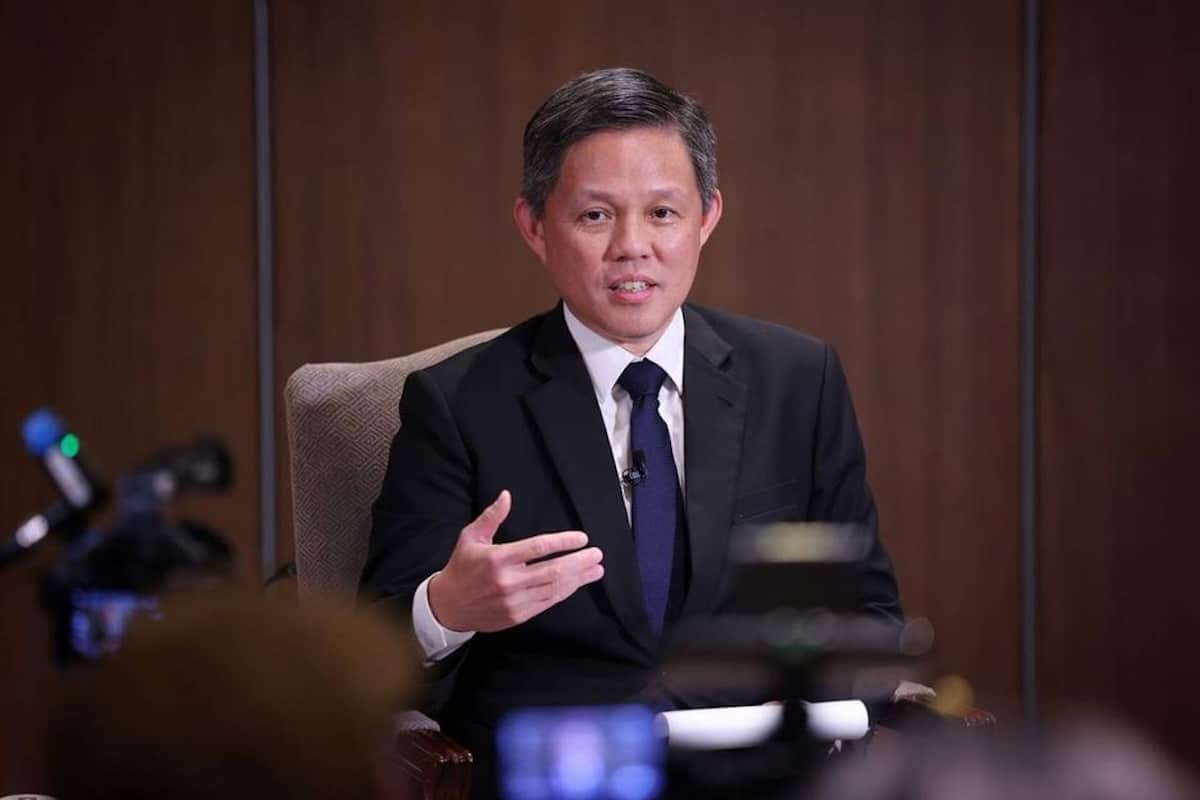China, US must keep talking to better understand each other – Singapore

Defence Minister Chan Chun Sing speaking at the close of the Shangri-La Dialogue on June 1.ST PHOTO: JASON QUAH
SINGAPORE – Direct dialogue between the United States and China must continue as both sides would benefit from understanding each other’s perspectives more deeply despite their differences, said Singapore’s Defense Minister Chan Chun Sing.
Speaking at a media wrap-up on June 1 at the close of the Shangri-La Dialogue, he added that his private conversations with both delegations indicated that the superpowers do want to understand each other better, but that this would require frank dialogue.
“Even if they don’t agree with what the other party says, it is important for them to hear what each other says and, perhaps more importantly, to understand why each party says what they say,” said Mr Chan.
His comments followed two days of discussions at the annual security forum in Singapore, which brought together regional and global defense leaders at the Shangri-La Hotel.
READ: Did China take a back seat at this year’s Shangri-La Dialogue?
The press conference, attended by local and foreign journalists, was dominated by questions about US Defence Secretary Pete Hegseth’s speech at the forum’s opening plenary, as well as China’s lower-level representation at this year’s gathering.
On May 31, the Pentagon chief warned that the threat China posed to its neighbors in the Indo-Pacific was “real”, and called on Asian countries to raise their defense spending.
Mr Chan said he read Mr Hegseth’s speech “very carefully, more than once” and urged others to consider it in full rather than to focus only on certain parts.
While the speech did highlight concerns about China’s behavior, he noted that it also contained a “quite significant” message of US intent.
Mr Hegseth said the US did not seek war, nor to dominate or strangle China. It also did not aim to encircle, provoke or seek regime change, nor will it instigate or disrespect a proud and historic culture, he added.
“Yes, he did talk about the China threat,” said Mr Chan. “But I think, and I may be wrong, it’s the first time something like that has been stated so clearly.
“So I leave it to the audience to put the weights on the different parts of the speech.”
Mr Chan stressed the importance of not looking at China or the US as monolithic powers, and that both societies have their domestic and external challenges.
READ: Pentagon chief: China ‘preparing’ to use military force in Asia
Understanding their internal dynamics will help countries understand why leaders of both powers do what they do, he added.
This is why the two powers have to talk to one another directly, and is where the value of the Shangri-La Dialogue lies, said Mr Chan.
Replying to a question on how the US’ and China’s positions on issues such as Taiwan and the South China Sea are so far apart that the two powers just talk over each other, he added that that is precisely why genuine dialogue is needed.
Apart from the plenary discussions, the forum’s value is in allowing for small-group discussions with counterparts from around the world. Mr Chan noted that he had 13 such meetings on May 31, away from the main discussions.
“It’s useful to just go into a room, have a cup of coffee, meet one another and exchange notes,” he said. “And if Singapore can provide the coffee and the table and chairs, we will gladly do that.”
Conversely, it is not very useful in defence diplomacy to exchange notes through social media, especially if the intent is to achieve deeper understanding, he added.
On the absence of China’s defense minister at the forum, Mr Chan reiterated that each country has its own considerations as to who it sends, and there should not be an overemphasis on whether a certain personality attends or not.
For the first time since 2019, China’s defence minister did not attend the dialogue. In his place, the delegation was led by Rear-Admiral Hu Gangfeng, vice-president of the People’s Liberation Army National Defense University.
Mr Chan said he met the US and Chinese delegations, and that his message to both was the same: that military and economic security must reinforce each other, a perspective shared by many countries over the weekend.
Reflecting on his first Shangri-La Dialogue as Defense Minister, Mr Chan added that some of his counterparts asked how he had been able to conduct the forum just seven days into assuming the defense portfolio.
The event was clearly not put together in seven days, he said, but was the outcome of a year’s worth of work by an entire team that included Mindef, the Singapore Armed Forces and other agencies.
“That is the beauty of the Singapore system – that it goes beyond the dependence on a single personality,” he added.
A remark made during the ministerial roundtable discussions that resonated with him was the phrase “freedom is not free”.
This was a powerful reminder that freedom requires commitment – both across political cycles, and in investments into people and capabilities, he noted.
Besides budgetary resources, freedom also requires public support for defence, and rising to meet new troubles and challenges, he said.
“If we have the commitment to seek peace (and) to work on building those relationships and trust, then I’m more confident that we can overcome the challenges by finding solutions.” /dl